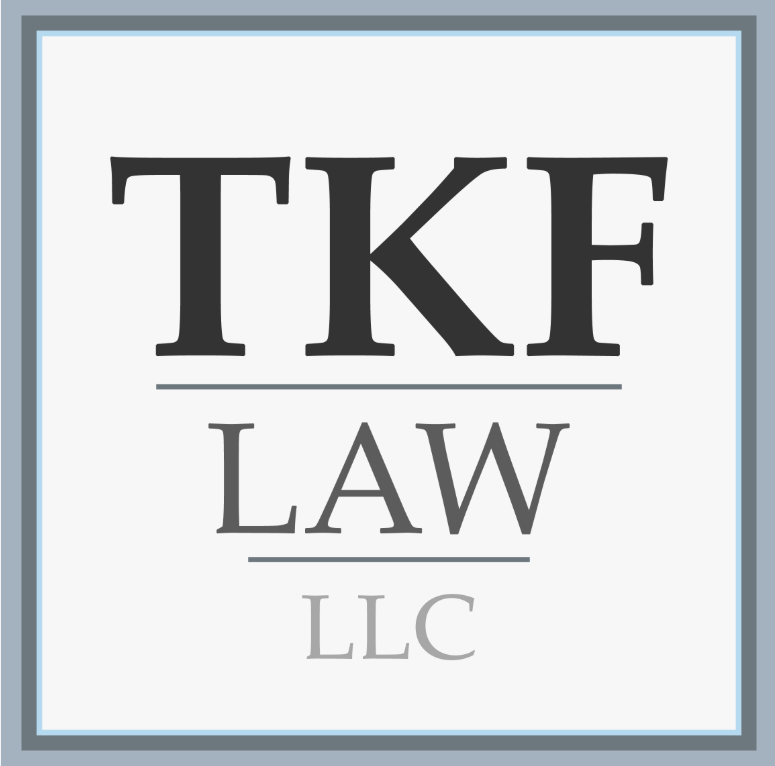Written by John Roberts of the Joyful Roberts Group
We understand that when you’re thinking about your future, it can bring up a lot of questions. We often speak with seniors in our community who are considering their next move, which often involves a real estate transaction, and these conversations naturally touch upon the importance of planning for the future.
We’ve also noticed that many feel a bit overwhelmed or confused about the entire process of estate planning, particularly when it comes to understanding the difference between wills and trusts.
To help clear up some of this confusion and provide you with reliable information, we reached out to our trusted estate attorney partner, Conor Hinds. Conor and his team at TKF Law are dedicated to helping everyone create a plan that provides peace of mind for themselves and their loved ones.
We had the opportunity to discuss some of the common points of confusion he encounters. Here’s what Conor shared:

Common Confusion in Estate Planning
The main motivations behind developing an estate planning practice was to offer a service that anyone and everyone can use to their benefit. Regardless of the “size” of our estate, we all leave behind someone or something important to us, and by asking the right questions and taking some simple steps, an estate plan can help ease the process of mourning and transition for families and loved ones during a critical time.
At TKF Law, we have encountered some common points of confusion over the years that tend to keep people from starting the process sooner rather than later, or cause them to avoid working on planning entirely. In general, the confusion is usually focused on three basic questions:

“Why have an estate plan?”
Most—if not all of us—have experienced the loss of a loved one, and many are familiar with the emotional, financial, and logistical burdens that can follow. It is understandably a difficult topic to address, and as a result, people tend to naturally distance themselves from thinking about what might happen to family members, pets, houses, and possessions when they are gone. What’s more, when people do find time to sit down and think about what might happen, there can be more questions than answers. Having an advisor, such as a financial planner, real estate agent, or attorney, can help to identify which areas you already have covered and which might require some additional steps to protect your assets in the future or to ensure property ends up with who you want it to go to.
When someone passes without any estate plan, their property typically passes through probate as an “intestate” estate, and is ultimately transferred to family and other relatives in a set order. Depending on the size of your family and your wishes concerning certain heirlooms and personal property, this could result in family members being unintentionally left out, or some items being divided in a way you wouldn’t have intended.

By properly creating a will, this problem can be addressed in advance. While property will still pass through probate, a will can designate how and among whom everything is divided. Further, you can appoint a representative—whether a family member, friend, or professional—to act out the will under your direction, and settle your estate.
The goal in crafting an estate plan is to work with you to determine what your wishes are and figure out the best way to carry them out. And, by using other tools in addition to a will, that plan can begin to take effect during your life, such as with an advance directive for healthcare decisions, or a living trust to help manage assets and ongoing expenses.
“Why would I want a trust?”
Something I have heard many times over is that a client had never considered creating a trust because they thought “trusts are only for multi-millionaires.” While a trust is certainly a useful tool for managing a large estate, the idea that trusts are only useful if you have two or more mansions is far from the truth. In fact, there are almost too many different types of trusts to list, with each providing a unique way to help manage and protect your assets both during and after your life.
More importantly, a trust is highly customizable and can be crafted to carry out your precise wishes for years to come. People commonly create a trust to transfer property without having to go through the probate process, as a protected education fund for their children, or to give a trusted person (conveniently named, a “trustee”) the ability to manage their finances. When combined with an advanced healthcare directive, a trustee can also step in to assist with healthcare decisions when a person becomes incapacitated.

Whether a trust is an appropriate option depends on a number of factors, including the type of assets you have and what you may ultimately want to happen to them. That being said, additional options are available to help ease the transfer of some types of property, such as beneficiary designations on an account or joint titling for a vehicle.
“Isn’t it too early to start planning?”
For most, the idea of sitting down to plan out funeral directions and go through account numbers is not attractive, and even the initial thought of “I really should have a will” can be put off for months or years. Unfortunately, as I have seen in my professional and personal life, too much delay can result in circumstances where time, health, and emotions add up to make planning difficult or impossible.
I like to encourage thinking of estate planning from the point of view of not only yourself in the present, but also your friends and family in the future. By taking the time to sit down with an advisor now and really work through what you want and how to get there, the estate planning process can reveal ways in which you can improve your lifestyle today and further ease the burden of decision-making and uncertainty for your loved ones down the road.
At the end of the day, it is important to know that everyone has an estate, and it never hurts to plan. Whether a will, trust, or other planning tool is right for you is a question with a different answer for everyone, but by taking the time to ask that question and seek professional advice today, you can help provide a great deal of peace and security for a lifetime.
Have Questions About Estate Planning?
We hope this information from Conor has helped to clarify some of the common confusion surrounding estate planning. If you have further questions or would like to discuss your specific situation, Conor Hinds and his team at TKF Law are happy to help. You can reach them at:

(503) 538-5200
chinds@tkflawyer.com
https://tkflawyers.com
201 North Meridian St., Suite B
Newberg, OR 97132
The Joyful Roberts Group is a local trusted advisor for seniors living in and around Newberg, and everyone on our team is a Seniors Real Estate Specialist. If a change is needed, we are here to connect you with the resources you need. Give us a call. We’d love to help you navigate through the process.





